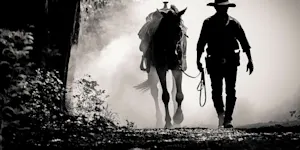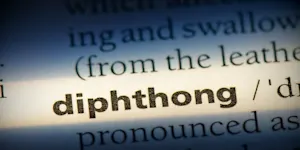What Makes This Word Tick
"Harangue" is one of those words that instantly conjures the image of a passionate, perhaps long-winded speaker. It's an intense word that implies a certain level of fervor, often used to describe a lecture or tirade that doesn't shy away from being forthright. Anyone who's been on the receiving end of a harangue knows it's not just about the words—it's about the delivery!
If Harangue Were a Person…
Picture that opinionated uncle at family dinners who just won't let go of the politics talk. He's a bit brash but always passionate, delivering his monologue as if he's on a stage. While he might seem overbearing, there's a genuine desire to impart wisdom (or at least his version of it).
How This Word Has Changed Over Time
Historically, "harangue" was not always used with the negative connotation it often carries today. It was once a neutral term for a public assembly speech, but over time, as public speeches became arenas for fierce debates, its association with passionate and potentially intrusive discourse grew.
Old Sayings and Proverbs That Use Harangue
While "harangue" isn't embedded in classic proverbs, it brings to mind the age-old idea: "Loose lips sink ships." Long, boisterous speeches often end up spilling more than intended—or just overwhelming the listener!
Surprising Facts About Harangue
Did you know that "harangue" has roots in the world of combat? It originally derived from the Old High German "hruing" which later became "harenga" in Old French, meaning a site for public debate or combat—a fitting origin for such a combative word!
Out and About With This Word
Ever find yourself at a rally or a political debate? You're bound to encounter a harangue or two. It's a word that's right at home in arenas filled with heightened emotions and strong convictions—where passion overflows into speech.
Pop Culture Moments Where Harangue Was Used
In films and TV shows, "harangue" often pops up during a heated courtroom scene or a political drama where the protagonist delivers a vigorous speech. Think of any movie courtroom drama where the defense attorney gives a heartfelt oration.
The Word in Literature
In literature, "harangue" fits comfortably within the political and historical genres. You'll often find it in texts where characters are delivering grand speeches, persuading a crowd against overwhelming odds. Look for it in stories of revolution and personal sacrifice.
Moments in History with Harangue
The world has seen its fair share of harangues with figures like Winston Churchill, whose wartime speeches, though perhaps more charismatic than a typical harangue, rallied the spirit of nations. Picture a fiery political leader on the campaign trail, delivering a speech with a dose of ferocity.
This Word Around the World
In France, the term retains a more neutral association, similar to its original sense, where "harangue" might simply mean delivering an address. In Italy, a fiery speech could be described with "arringa," carrying the same fervor.
Where Does It Come From?
"Harangue" emerged from Middle French, drawing from the word "harenga," which in turn has Germanic roots meaning to shout or rally. Its journey across languages showcases its persistent connection to public speech.
How People Misuse This Word
People sometimes erroneously use "harangue" to mean any kind of speech or lecture, without appreciating its connotation of being long, aggressive, or impassioned. Remember, it's not just a speech—it's a forceful one!
Words It’s Often Confused With
Lecture: A lecture can be informative and calm, while a harangue is often forceful and relentless.
Rant: A rant may be less structured and more about venting, whereas a harangue implies a certain level of purpose and direction.
Sermon: Although both can serve to admonish, sermons are typically religious and can be gentle, unlike the combative tone of a harangue.
Additional Synonyms and Antonyms
Synonyms for "harangue" include tirade, diatribe, and broadside. For antonyms, consider calm dialogue, discourse, or conversing.
Want to Try It Out in a Sentence?
"After missing the curfew, Jamie endured a harangue from his parents about the importance of time management and responsibility."
















